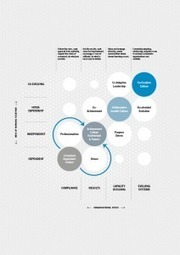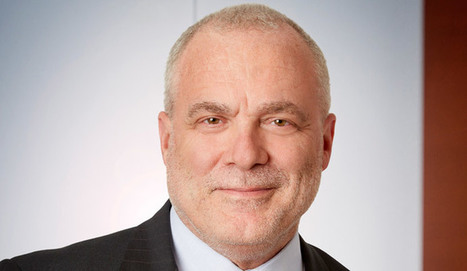If you’re a CEO, how could a better understanding of organizational culture help you? Conversely, how can the inability to manage or change culture hold the business back? During a recent gathering of CEOs and board directors in Chicago, we kicked off a discussion about culture and business performance with a simple question: How does the topic of culture come up at the board level or with your executive team today?
The responses reflected the breadth of strategic and business challenges that CEOs and their teams face today, including:
- Aligning the organization around a transformation agenda
- Innovating for the future while maintaining strong execution today
- Integrating teams and organizations in a merger or acquisition
- Effectively managing a changing workforce
- Building organizational support for a new CEO
- Bringing customers along with new processes or offerings
Our discussion with CEOs and board directors underscored why it’s so important for leaders to manage and shape culture today. Here are five takeaways from our discussion.
Culture should be viewed as a foundational business system and managed as such.
Amid the unprecedented volatility, uncertainty, complexity, ambiguity and pace of change facing organizations, culture plays an important role in helping organizations adapt to emerging challenges. It’s not enough for leaders to rely on strategy, structure and processes to manage the business because they don’t adequately address the people side of the change equation. But the right culture allows companies to coordinate activities across very big, complex organizations very quickly. Organizations that embrace the same sort of management discipline around culture as they do for other key performance levers like strategy and financial operations will be best positioned to shape culture to support emerging needs. Ideally, conversations about culture will be integrated into the natural flow of the business — during regular management team meetings, the annual strategy session and other follow-up strategy discussions.
Managing culture requires a definition and a model.
It’s not unusual for “culture” to become a catch-all for everything people don’t like about an organization, or for people to think about culture in terms of the outcomes they want to achieve — say, a customer-focused culture. But this isn't that helpful, because customer focus at Google will look very different than at Goldman Sachs or Disney. To understand culture, we need to look deeper at the underlying social system that directs the organizational behaviors that lead to specific outcomes. We define culture as the shared assumptions that drive the way organizations think, behave and act. Culture is pervasive; whether leaders acknowledge it or not, it's everywhere. Executives have an opportunity to either shape culture or allow it to shape them.
To shift the culture, you first have to be able to articulate what the culture is today and whether it supports your strategic priorities. Our culture model allows us to identify the underlying shared assumptions that are most influential in the organization and how they are guiding the way the organization thinks, behaves and acts — and how those assumptions align with stated strategy.
Start from the outside-in when setting a target culture.
When working with organizations to define a target culture, we recommend starting with the external trends that will affect the business. What regulatory, competitive and customer trends drive what the organization needs to do? We also look at the company’s strategic direction, as well as its heritage, history and current culture. Finally, we consider the kind of culture that would motivate and draw out the best of the current workforce. These data points serve as inputs for business leaders in making a data-based decision about what that target culture should be and how they can align their people around it.
Culture and leadership are inextricably linked, so select and develop leaders who support the culture you want.
The style of the management team — especially the CEO — the way they behave and communicate, what they focus on in meetings, the questions they ask and the people who they hire, recognize and promote all send signals about the culture and how to succeed in it. That’s why when you’re trying to shape culture, leaders play a central role in setting the tone and changing habits. A very aggressive, results-focused culture, for example, will bring out those behaviors in leaders or push out people who don’t like that culture. An important part of shifting culture in a certain direction, then, is leadership selection — who is in what roles and the models they set. The most effective culture change leaders are credible in the current culture, but are able to help push the culture in the desired direction.
Boards overlook an important area of risk and performance oversight if they aren’t asking about culture.
A company’s culture can make or break even the most insightful strategy or the most experienced executives. Cultural patterns can produce innovation, growth, market leadership, ethical behavior and customer satisfaction. On the other hand, an unhealthy or misaligned culture can impede strategic outcomes, erode business performance, diminish customer satisfaction and loyalty, and discourage employee engagement. Boards should consider whether they have an adequate line of sight on the culture and understand the cultural fluency and impact of the management team. In addition to assessing any potential risks the culture could pose, boards also will want to incorporate thinking about culture into forward-looking activities such as CEO succession planning.
***
When there is a need to shift the culture, it’s tempting to focus on all the ways the current culture isn’t working or focus energies on short-term initiatives or one-day workshops. But absent a framework and ongoing management discipline around culture, the organization is likely to quickly fall back into familiar habits and cultural patterns. Our research has shown that culture can be managed and shaped by diagnosing the current culture; defining a target culture that aligns with the needs of the business; selecting and developing leaders with culture in mind; gaining buy-in for the target culture through structured conversations across the organization; and ensuring that performance management, training, compensation and other systems and processes support the ideal culture.
 Your new post is loading...
Your new post is loading...
 Your new post is loading...
Your new post is loading...























This article is a fantastic exploration of organisational culture, including how culture often gets blamed and how large scale reform programs offer a visible (marketable), but largely superficial response.
The article explores the opportunity for smaller and more localised interventions. I particularly enjoyed the exploration of :
network analysis and structural aspects of culture (buildings/infrastructure, policies, procedures) that support underlying power structures. These highlight the importance of social and structural levers for evolving culture, in addition to the Individual Transformation lever, which includes values, behaviours and competencies and is often the soul focus..